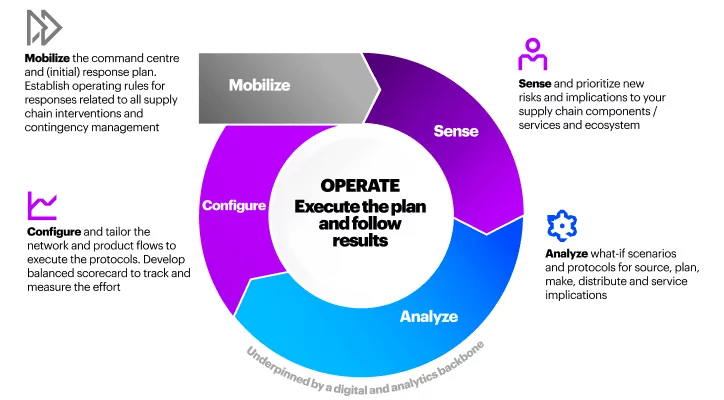The hospitality industry is no stranger to supply chain disruptions. Natural disasters, global events, economic fluctuations, and unforeseen circumstances can all impact the supply chain, leading to operational challenges for hotels, restaurants, and other hospitality establishments. Effective supply chain management and preparedness are essential in mitigating the effects of disruptions and ensuring the seamless delivery of products and services to guests. This article explores the significance of managing supply chain disruptions in the hospitality sector, the strategies employed to build resilience, and the benefits of a proactive approach in navigating uncertainties.
- Understanding Supply Chain Disruptions
Supply chain disruptions are events or incidents that interrupt the flow of goods and services through the supply chain. Disruptions can occur at any stage, from sourcing raw materials to delivering final products to customers.
- The Impact of Disruptions on the Hospitality Industry
Supply chain disruptions in the hospitality industry can lead to inventory shortages, delayed deliveries, increased costs, and reduced customer satisfaction. These disruptions can be particularly challenging in an industry where guest experiences and reputation are paramount.
- Building Resilience in the Supply Chain
To effectively manage disruptions, hospitality establishments must focus on building resilience within their supply chains. Resilience involves the ability to anticipate, respond, and recover from disruptions effectively.
- Risk Assessment and Contingency Planning
Conducting risk assessments allows businesses to identify vulnerabilities in the supply chain. Based on these assessments, contingency plans can be developed to address potential disruptions and ensure continuity.
- Diversification of Suppliers
Relying on a diverse set of suppliers can reduce dependency on a single source and offer alternatives during disruptions. Establishing relationships with local and international suppliers can be instrumental in maintaining supply chain flexibility.
- Inventory Management and Safety Stock
Effective inventory management practices, including maintaining safety stock levels, help buffer against sudden demand fluctuations and supply disruptions.
- Collaboration with Supply Chain Partners
Collaborating closely with suppliers and partners promotes better communication and coordination during times of disruption. Shared information and resources enable joint problem-solving and quick response to challenges.
- Real-Time Data and Technology Integration
Access to real-time data and the integration of technology allow businesses to monitor the supply chain closely. This visibility enhances decision-making and facilitates rapid response to disruptions.
- Sustainable Practices for Resilience
Sustainable practices, such as local sourcing and responsible procurement, can contribute to supply chain resilience by reducing dependency on distant sources and promoting regional stability.
- Crisis Communication and Guest Engagement
Effective crisis communication with guests is crucial during disruptions. Transparency and timely updates build trust and reassure guests that the establishment is actively addressing challenges.
- Scenario Planning and Simulation
Scenario planning and simulation exercises help businesses prepare for various disruption scenarios. Identifying potential impacts and developing response plans can be valuable during actual disruptions.
- Learning from Past Disruptions
Analyzing past disruptions and their management provides valuable insights for improving future response strategies and strengthening supply chain resilience.
Benefits of Effective Supply Chain Disruption Management
a. Enhanced Guest Satisfaction: A well-managed supply chain minimizes disruptions, ensuring guests receive the products and services they expect.
b. Cost Savings: Resilience measures, such as inventory management and diversified sourcing, lead to cost savings during disruptions.
c. Competitive Advantage: Establishments with robust supply chain management gain a competitive edge, attracting guests who value reliability and consistency.
d. Business Continuity: Effective disruption management enables business continuity, minimizing downtime and revenue loss.
e. Reputation Protection: A proactive approach to supply chain disruptions helps protect the reputation and brand image of hospitality establishments.
Conclusion
In the dynamic and unpredictable world of the hospitality industry, supply chain disruptions are inevitable. However, with effective disruption management and resilience-building strategies, hospitality businesses can navigate uncertainties and minimize the impact on their operations and guest experiences. By conducting risk assessments, developing contingency plans, collaborating with supply chain partners, and leveraging technology, the hospitality industry can build resilience and adaptability. A proactive approach to supply chain disruption management ensures continuity, protects the reputation of establishments, and ultimately contributes to long-term success in an ever-evolving market.






